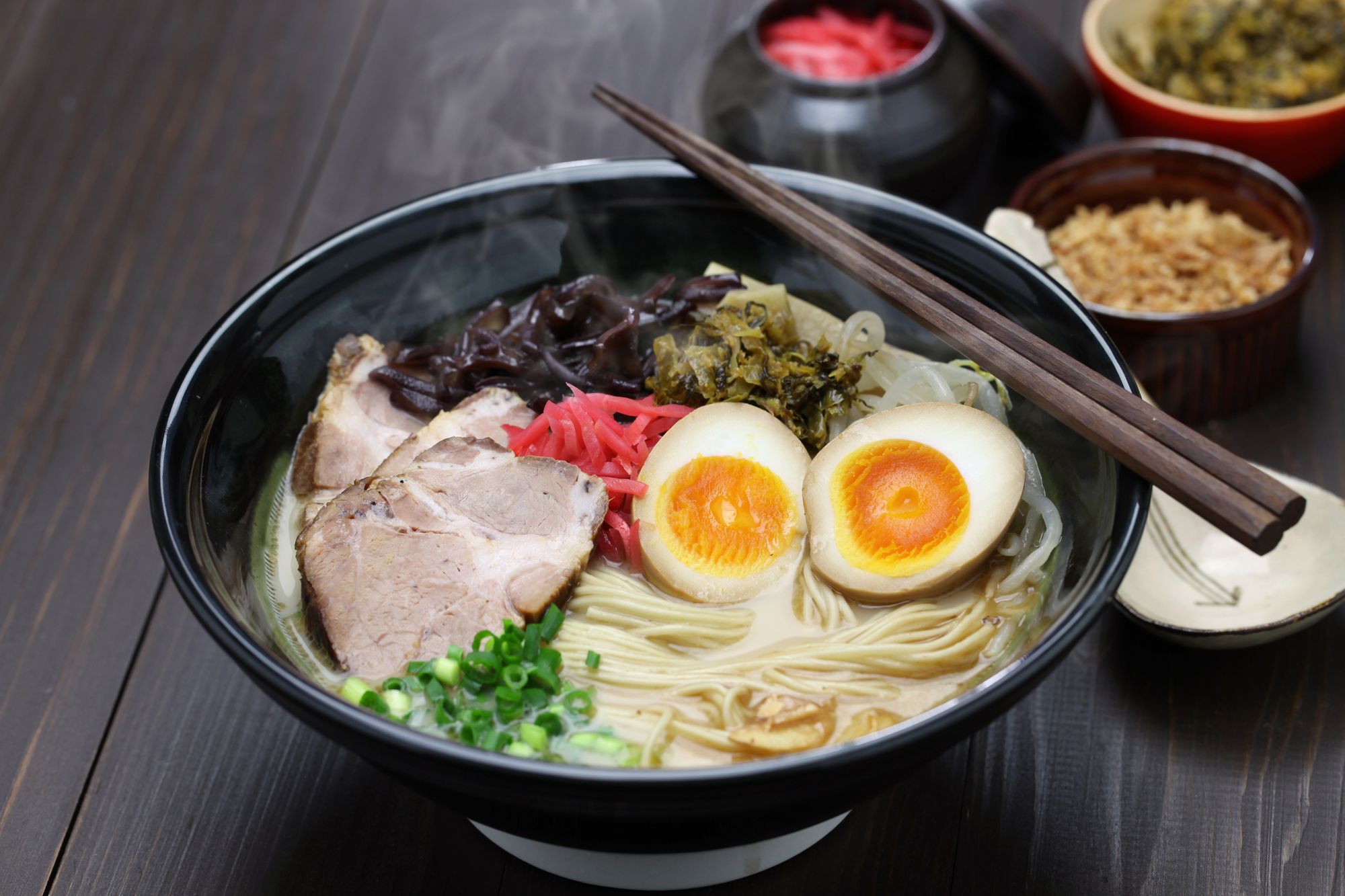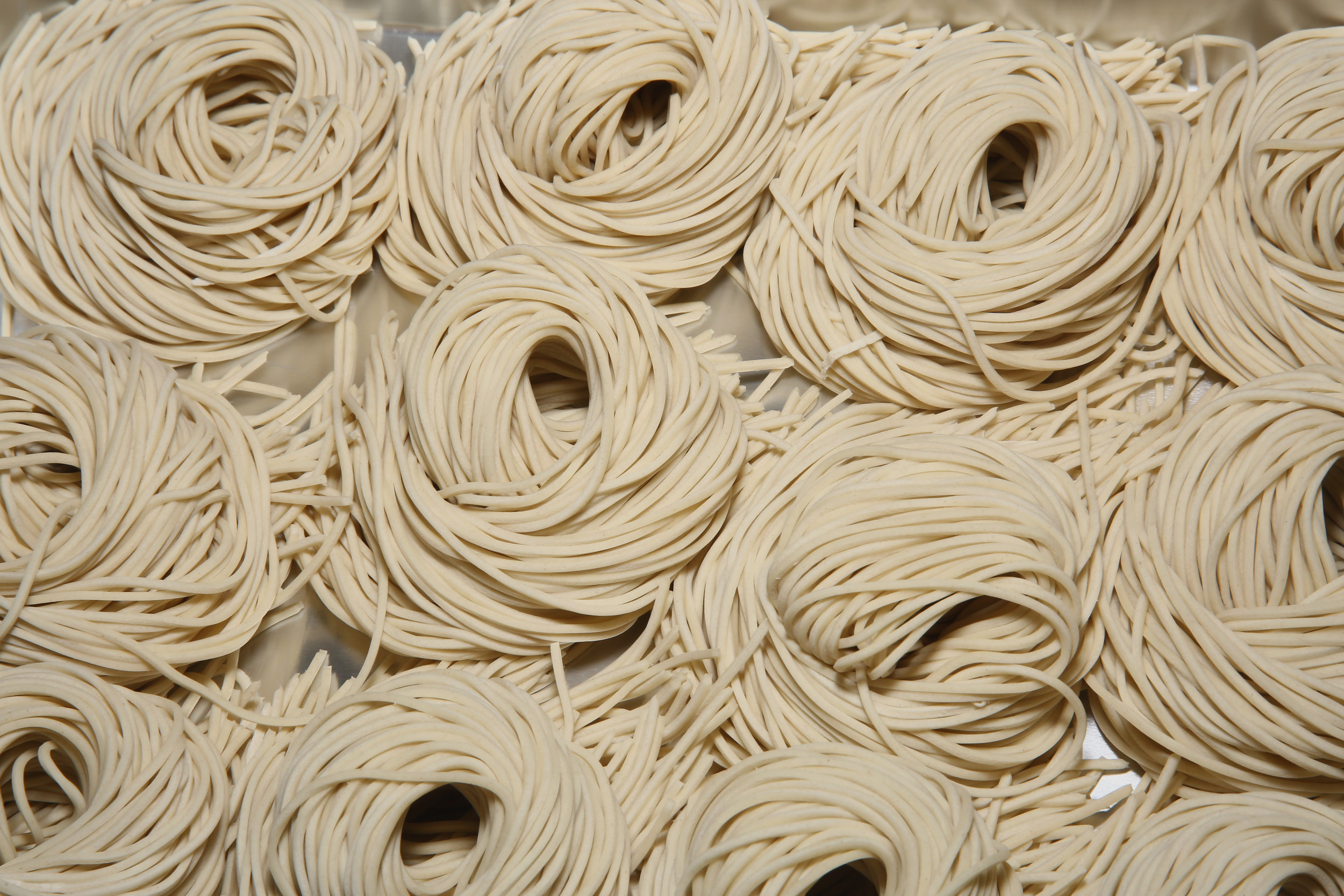Is your favorite bowl of ramen potentially harboring a hidden danger? The intersection of ramen and Listeria presents a serious food safety concern, demanding a closer look at the risks and preventative measures.
Listeriosis, an infection caused by the bacterium Listeria monocytogenes, can manifest as a range of symptoms from mild gastrointestinal distress to severe, life-threatening complications. Fever, muscle aches, nausea, vomiting, and diarrhea are common indicators. However, the insidious nature of Listeria lies in its ability to trigger meningitis or encephalitis in vulnerable individuals. Pregnant women, older adults, and those with compromised immune systems face the greatest threat, making awareness and prevention paramount.
| Category | Information |
|---|---|
| Name | Listeria monocytogenes |
| Type | Bacteria |
| Disease Caused | Listeriosis |
| Symptoms of Infection | Fever, muscle aches, nausea, vomiting, diarrhea, meningitis, encephalitis |
| Foods Commonly Contaminated | Raw or undercooked meats, unpasteurized milk, soft cheeses, and, potentially, ramen |
| Treatment | Antibiotics |
| Prevention | Thoroughly cooking meats, avoiding raw or undercooked foods, practicing good food hygiene |
| High-Risk Groups | Pregnant women, elderly individuals, people with weakened immune systems |
| Reference | CDC - Listeria (Listeriosis) |
The vulnerability stems from the bacterium's ability to thrive in refrigerated environments, a characteristic that distinguishes it from many other foodborne pathogens. This resilience means that simply storing food in the refrigerator may not eliminate the risk of contamination. Instead, stringent cooking and handling practices are essential to mitigating the threat.
- Neopolis Kokapet Sez Photos Your Ultimate Guide To Capturing The Magic
- Unltd Indonesia The Gamechanger In Digital Marketing And Beyond
The crucial step in preventing listeriosis lies in thorough cooking. Heat is Listeria's enemy, and ensuring that meat reaches an internal temperature sufficient to kill the bacteria is paramount. Avoiding raw or undercooked meat, especially for those in high-risk categories, is equally critical. Pregnant women, in particular, should exercise caution and avoid ramen and other dishes that may contain uncooked or partially cooked meat.
Should symptoms suggestive of listeriosis arise, prompt medical intervention is vital. While antibiotics can effectively combat the infection, early diagnosis and treatment significantly improve the chances of a full recovery and minimize the potential for severe complications. Don't hesitate seek professional medical advice if you suspect exposure.
Ramen, a beloved staple of Japanese cuisine, often features broths and toppings that incorporate meat. It's the preparation and handling of these meat components that can either safeguard or jeopardize consumer health. When raw or undercooked meat finds its way into the final dish, it creates a potential breeding ground for Listeria, turning a comforting meal into a health risk.
- Quickies Halal A Comprehensive Guide To Enjoying Life Without Compromising Your Values
- Toy Poodles For Sale Atlanta Finding Your Perfect Furry Friend
- Bacteria:Listeria monocytogenes, a bacterium capable of causing severe infections through contaminated food consumption.
- Contamination: Ramen becomes a potential vector for Listeria contamination when raw or undercooked meat is included in its preparation.
- Infection: Listeriosis, the disease triggered by Listeria bacteria, poses a significant health risk.
- Symptoms: The clinical signs of listeriosis can include fever, muscle pain, nausea, vomiting, and diarrhea.
- Treatment: Antibiotics are the primary course of treatment for listeriosis.
- Prevention: Rigorous cooking of meat, avoidance of raw or undercooked meat, and heightened vigilance among high-risk groups are crucial for prevention.
- High-risk groups: Pregnant women, elderly individuals, and those with compromised immune systems are particularly susceptible to listeriosis.
Listeriosis can be averted by embracing straightforward strategies focused on preventing food contamination. If you have reason to believe you've contracted listeriosis, seek immediate medical attention. Early intervention can be pivotal in managing the infection effectively.
Listeria is more than just a bacterium; it's a microscopic adversary capable of triggering listeriosis, a severe infection with symptoms like fever, muscle aches, nausea, vomiting, and diarrhea. It lurks in various foods, including uncooked meats, unpasteurized milk, and soft cheeses. Ramen, a Japanese noodle soup often containing raw or undercooked meat, presents a potential pathway for Listeria contamination.
- Transmission:Listeria travels to humans through tainted food sources. Ramen, because of its frequent use of raw or undercooked meat, is a possible contamination source.
- Symptoms: The scope of listeriosis symptoms spans from mild to severe. Mild symptoms include fever, muscle aches, nausea, vomiting, and diarrhea. Severe symptoms can escalate to meningitis, encephalitis, and even death.
- Treatment: Antibiotics form the cornerstone of listeriosis treatment. Prompt diagnosis and treatment are crucial in warding off severe complications.
- Prevention: Cooking meat thoroughly and shunning raw or undercooked meat, especially for those in high-risk categories, are essential preventative steps.
Combating listeriosis requires consistent adherence to safe food practices. Should you suspect you have contracted listeriosis, it's crucial to seek medical care immediately.
Ramen's contamination with Listeria can occur during production, whereby bacteria residing in the meat used in the ramen can transfer to the noodles and broth. Insufficient cooking also facilitates contamination. Ramen must be cooked to an internal temperature of 165 degrees Fahrenheit to eradicate any present bacteria.
Consuming Listeria-contaminated ramen can lead to listeriosis. Symptoms range from mild fever, muscle aches, nausea, vomiting, and diarrhea to severe meningitis, encephalitis, and even death. High-risk individuals, such as pregnant women, the elderly, and those with compromised immune systems, are especially vulnerable.
To prevent listeriosis, thorough cooking of ramen is essential. Refrain from consuming raw or undercooked meat, especially if you are at high risk.
If you suspect you have listeriosis, seek immediate medical care. Antibiotics are effective, but early diagnosis and treatment are key to preventing serious complications.
Listeriosis is a serious infection stemming from the consumption of food tainted with Listeria bacteria. Ramen, a Japanese noodle soup, may serve as a source of Listeria contamination due to the raw or undercooked meat often used in its preparation. Consuming such ramen can result in listeriosis.
Listeriosis symptoms can be mild to severe, ranging from fever, muscle aches, nausea, vomiting, and diarrhea to meningitis, encephalitis, and even death. Pregnant women, the elderly, and those with weakened immune systems are particularly susceptible.
Preventing listeriosis requires thorough cooking of ramen, and avoiding raw or undercooked meat, especially if you are at high risk.
Immediate medical attention is necessary if you suspect listeriosis. Antibiotics can effectively treat it, but early diagnosis and treatment are vital for preventing serious complications.
- Fever: Fever is a frequent symptom of listeriosis, triggered by the body's immune response.
- Muscle aches: Muscle aches are another common symptom, resulting from muscle inflammation.
- Nausea: Nausea is a frequent symptom, caused by irritation of the stomach and intestines.
- Vomiting: Vomiting, a common symptom, is the body's attempt to expel the bacteria.
- Diarrhea: Diarrhea is a common symptom, resulting from intestinal inflammation.
If you experience any of these symptoms after eating ramen, immediate medical attention is essential. Early diagnosis and treatment with antibiotics are critical in preventing serious complications.
Antibiotics are the standard treatment for listeriosis, effectively targeting and eradicating Listeria bacteria. Early diagnosis and treatment are key to preventing severe complications.
If you suspect listeriosis, seek immediate medical attention. While it is a serious infection, successful treatment with antibiotics is possible, and early intervention is vital.
Preventing listeriosis necessitates cooking meat to an internal temperature of 165 degrees Fahrenheit. Avoiding raw or undercooked meat, particularly for high-risk individuals such as pregnant women, the elderly, and those with weakened immune systems, is crucial.
Pregnant women should avoid ramen and other foods containing raw or undercooked meat, as well as soft cheeses and unpasteurized milk, which may be contaminated with Listeria.
If you suspect listeriosis, seek immediate medical attention. Antibiotics can treat the infection, but early diagnosis and treatment are essential for preventing serious complications.
Pregnant women are at a heightened risk of contracting listeriosis due to the suppression of their immune systems during pregnancy, making them more vulnerable to Listeria bacteria. Listeriosis can lead to severe pregnancy complications, including miscarriage, premature birth, and stillbirth.
The elderly also face an increased risk due to weakened immune systems, increasing their susceptibility to Listeria infection. Listeriosis can cause severe complications in the elderly, such as pneumonia, meningitis, and sepsis.
Individuals with compromised immune systems, including those with HIV/AIDS, cancer, and diabetes, are also at high risk, making them more susceptible to Listeria bacteria. Listeriosis can lead to severe complications, including pneumonia, meningitis, and sepsis.
The consumption of ramen made with raw or undercooked meat can increase the risk of Listeria contamination and subsequent listeriosis.
It is imperative for high-risk individuals to avoid consuming ramen and other foods that may contain raw or undercooked meat. Pregnant women, the elderly, and individuals with weakened immune systems should also steer clear of soft cheeses, unpasteurized milk, and other foods potentially contaminated with Listeria.
If you suspect listeriosis, prompt medical attention is crucial. Antibiotics can treat the infection, but early diagnosis and treatment are paramount for preventing serious complications.
This section addresses frequently asked questions concerning ramen and listeria, providing clear answers to common concerns and misconceptions.
Question 1: What is listeria, and how does it relate to ramen?
Answer: Listeria is a bacterium that can cause severe infections if consumed through contaminated food. Ramen can become contaminated if raw or undercooked meat is used in its preparation.
Question 2: What are the symptoms of listeriosis?
Answer: Symptoms range from mild to severe, including fever, muscle aches, nausea, vomiting, and diarrhea. Severe cases can lead to meningitis, encephalitis, or even death.
Question 3: Who is at high risk for listeriosis?
Answer: Pregnant women, the elderly, and individuals with weakened immune systems face an elevated risk, particularly due to suppressed immune functions during pregnancy.
Question 4: How can I prevent listeriosis from eating ramen?
Answer: Thoroughly cook ramen and ensure that the meat reaches an internal temperature of 165 degrees Fahrenheit. Avoid consuming raw or undercooked ramen, especially if you are in a high-risk group.
Question 5: What should I do if I think I have listeriosis?
Answer: Seek medical attention immediately. Listeriosis is treatable with antibiotics, but early diagnosis and treatment are crucial for preventing severe complications.
Question 6: Are there any alternatives to ramen that are safe to eat?
Answer: Yes, including udon, soba, or vegetarian ramen made with thoroughly cooked vegetables and broth.
Listeriosis can be prevented by practicing safe food handling and cooking. High-risk individuals should take extra precautions to avoid potentially contaminated foods, including ramen with raw or undercooked meat.
For more information on food safety and listeria prevention, please consult with your healthcare provider or a food safety expert.
- Brian Weitzel The Wall Nj Legend You Need To Know About
- Taking A Deep Dive Into Ldquougravedaggeroslashsectugravedagger Oslashsup3oslashshyoslashplusmn Oslashordfugravedaggeroslashplusmnoslashsectugravedaggerugravefrac34oslashsectoslashplusmnoslashsup3rdquo Your Ultimate Guide


